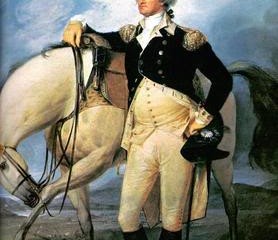Big Threat on Campus Isn’t Political Correctness: Ramesh Ponnuru

Yet they are close friends, frequently and unaffectedly calling each other “brother.” For several years they have been teaching a class together — titled “Adventures in Ideas” and exploring the thought of writers from Plato and St. Augustine to John Dewey and C.S. Lewis — and holding public discussions around the country.
A few days ago, I moderated a conversation between them at the American Enterprise Institute, where I am a fellow, on the purpose of the liberal arts. From time to time these discussions have led to controversy: At Swarthmore, some students opposed hosting the duo because George, an alumnus of the college, opposes same-sex marriage.
Given their common commitment to robust debate, you might expect George and West to be concerned about the declining tolerance for it on college campuses. Both of them see attempts to disinvite or shout down speakers based on their points of view as a betrayal of the liberal arts. As West puts it, “It’s not a matter just of having the courage of our convictions, but the courage to attack our convictions.”
One thing that surprised me about our panel, though, was how little they dwelt on political correctness and how much they talked about another threat to the liberal arts: the tendency to view higher education purely in terms of its economic benefits. “Our age is an age of the celebration and valorization of wealth, power, influence, status, prestige,” George said. “Those things are not bad in themselves, but they easily and all too often become the competition for leading an examined life.”
And it is the examined life that both George and West view as the purpose of a liberal-arts education. Its goal, that is, is to encourage critical reflection on the biggest questions; to lead us into an intellectual engagement that fulfills our nature as thinking beings; to help us achieve self-mastery; to enlarge our souls. It is, of course, possible to pursue these goals without going to college, but institutions of higher education are (or should be) dedicated to them in a special way.
It is a mission that asks a lot. West pointed out that students have to be prepared to shed their unexamined beliefs, even ones that are part of their identities: “That’s a form of death.” Professors have to be willing to expose students to points of view with which they deeply disagree — and to do it without stacking the deck. Parents have to be willing to pay for the experience even when it has no material payoff.
A liberal-arts education, George concluded, is “like getting on a train not knowing where you’re going to get off and maybe even not recognizing who you are anymore when you get off that train.” West interjected that the same could be said of falling in love.
The professors have both sketched and modeled a noble vision of what education can and should be. But it is also a countercultural vision — one that faces challenges and obstacles even more formidable than those posed by political correctness.
This column does not necessarily reflect the opinion of the editorial board or Bloomberg LP and its owners.




No Comment